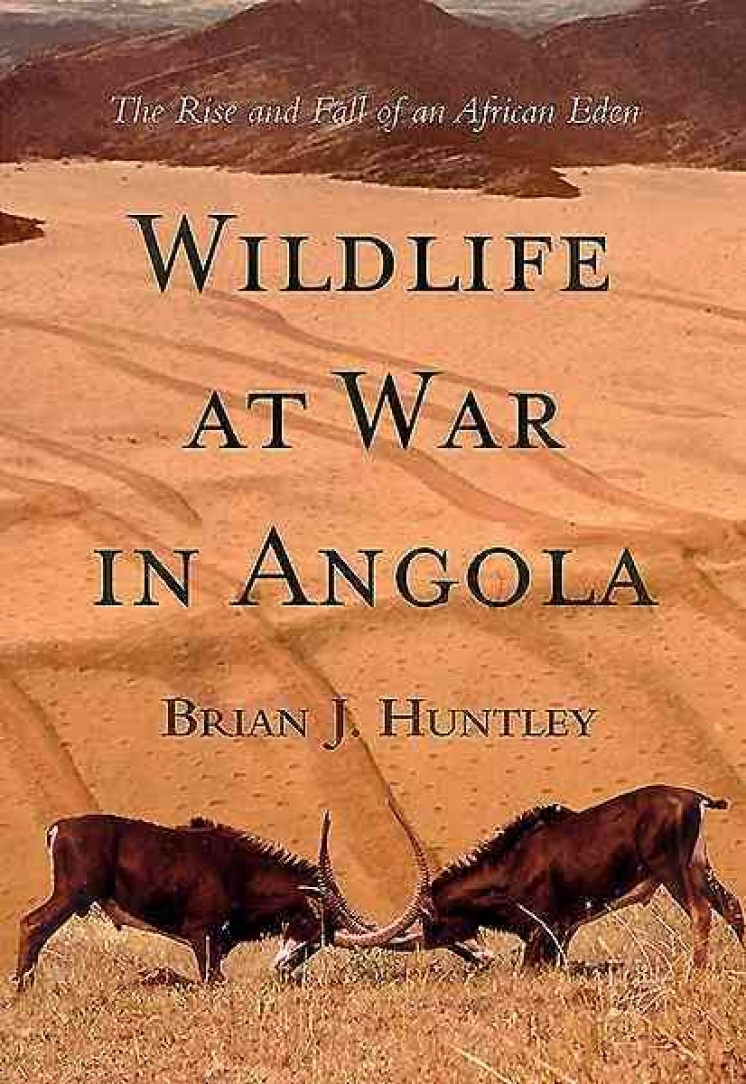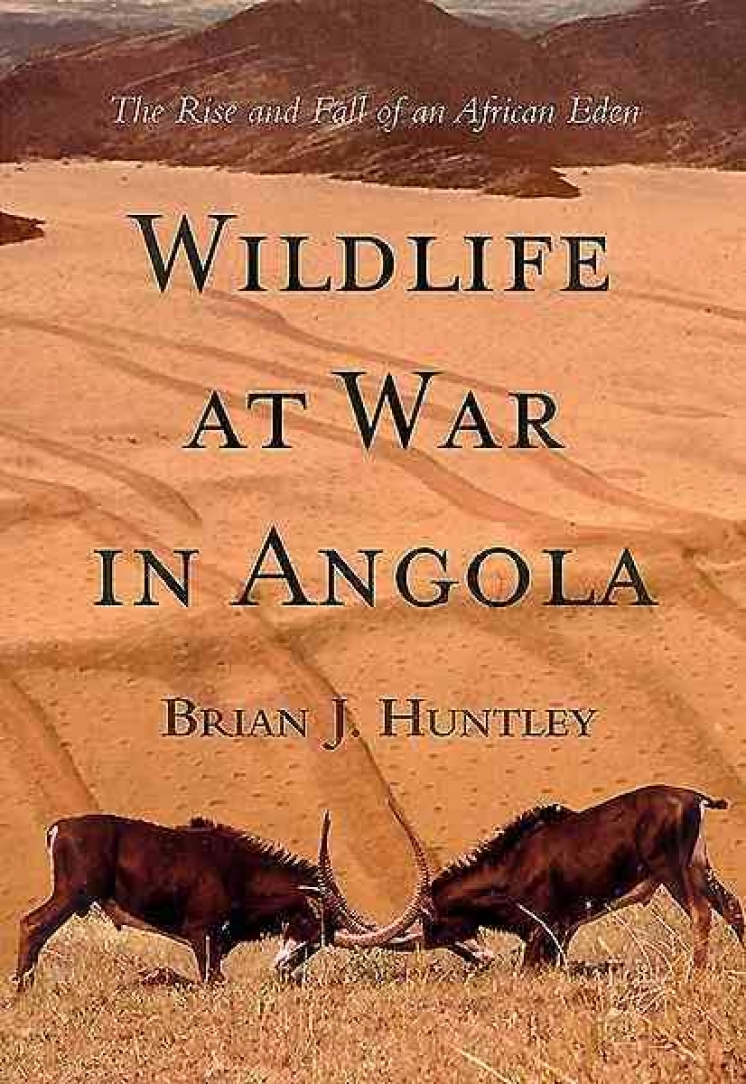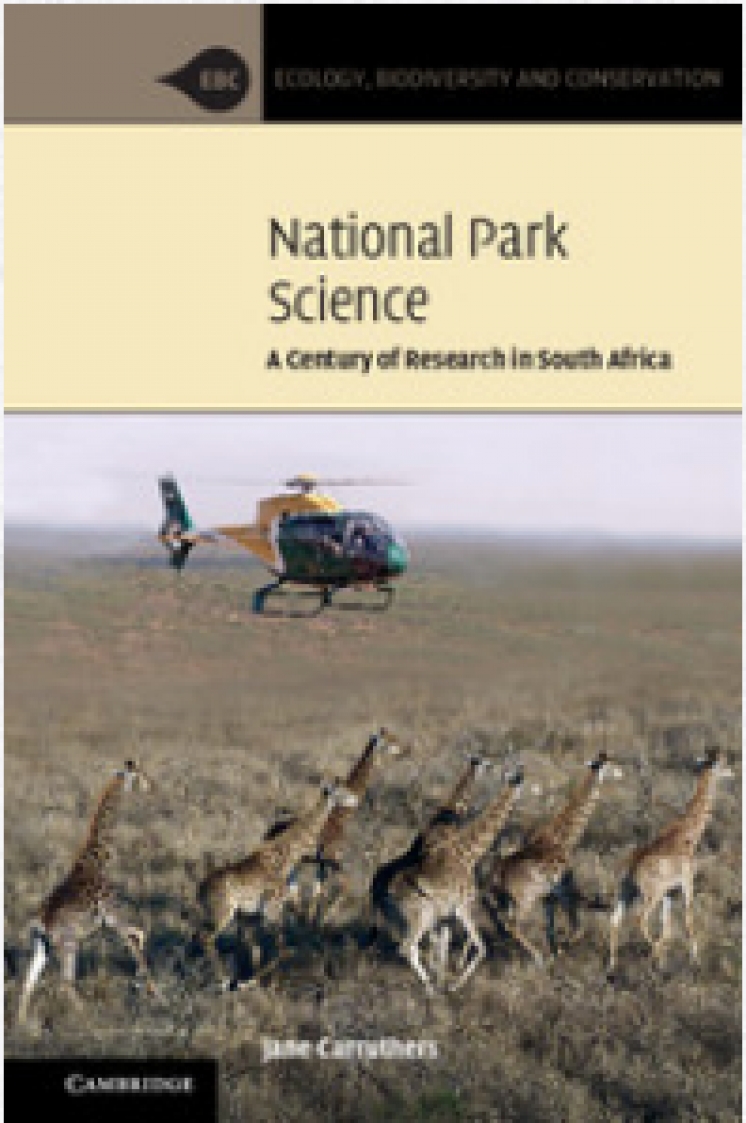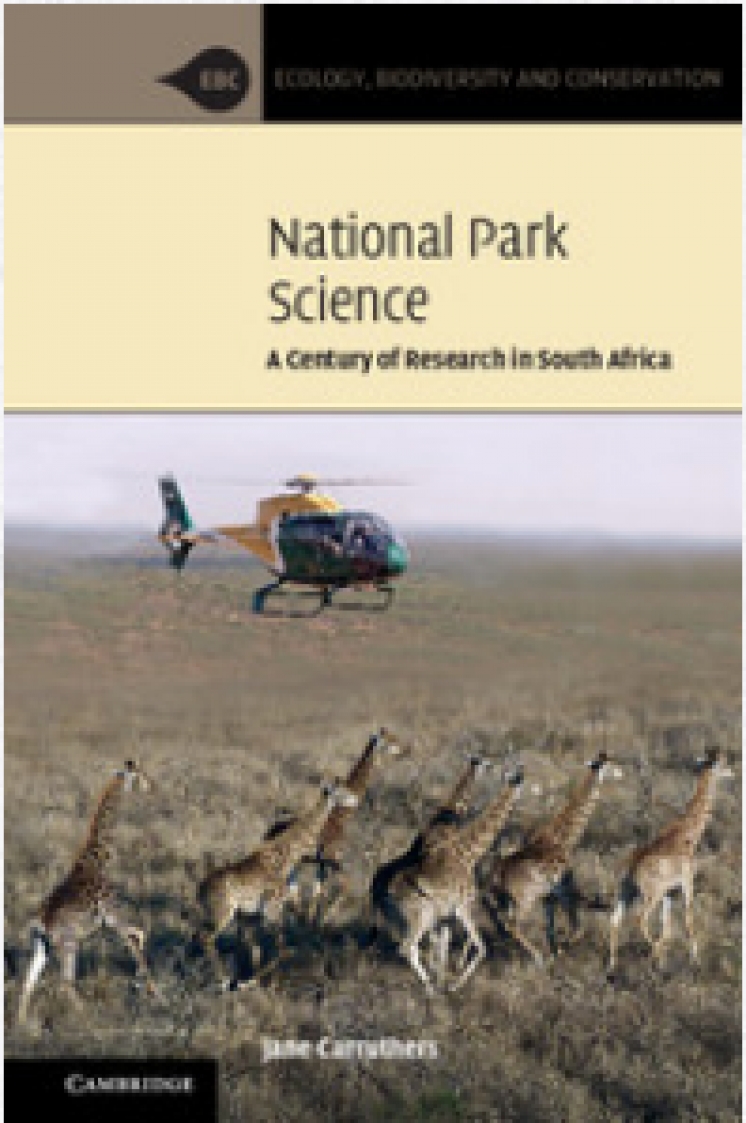CfP: História - Revista da FLUP, IV Série, Número 8, 1.º semestre, 2018 - O(s) Tempo(s)
CALL FOR PAPERS
Submission deadline: 5th march, 2018.
IV Série, Number 8, 1st Semester, 2018- The Time(s)
(editors of special issue: Inês Amorim, Sara Pinto and Luís Pedro Silva)
The Journal História – Revista da FLUP welcomes the submission of articles for publication in a special issue that proposes to explore the multiple meanings of the word time, aspiring to weave a kaleidoscopic tapestry in light of a wide range of possible approaches, such as: time/memory, tradition and identity; time/work and business; time/distance; time/leisure; time/science, technique and technology; time/heritage; time/weather and meteorology; etc..
"Wildlife at War in Angola: The rise and fall of an African Eden", by Brian Huntley
This book describes in fascinating detail the wildlife, wild places and wild personalities that occupied Angola’s conservation landscape through four decades of war and a decade of peace. Intrigues, assassinations, corruption, greed and incompetence ‒ during the colonial era, through the horrific war and most especially throughout the crony-capitalist kleptocracy of President Jose Eduardo dos Santos ‒ have resulted in the extinction of most of its formerly abundant wildlife populations and the decay and erosion of a once endless Eden. This is the first book to integrate the political, economic and environmental threads that account for the postcolonial tragedy of one of Africa’s most biologically diverse countries. A corrupt government has robbed the country of its vast oil and diamond wealth, of its environmental health, of its morality and of its soul. It was not always so. The author was appointed ecologist to Angola’s National Parks in 1971. But the vast open spaces, peaceful stillness and tropical luxuriance that he found during the four years they spent exploring and developing the country’s wildlife reserves was not to last. The powder keg of anger against centuries of colonial exploitation ‒ of slavery, of forced labor and of an abusive system of penal settlement ‒ could not be contained. Bloody nationalist uprisings led to the abandonment of Angola by Portugal and the transition from random guerrilla skirmishes with a colonial army into a brutal civil war that cost over one million lives. Despite its scarred history, the author believes the country can still rebuild its national parks and save much of its wildlife and wilderness. But this can only happen if the current ageig autocracy makes space for a new generation of Angolan conservationists.
New book: "Wildlife at War in Angola: The rise and fall of an African Eden", by Brian Huntley
"Wildlife at War in Angola: The rise and fall of an African Eden", by Brian Huntley. He was head of SANBI (the South African Biodiversity institute and prior to that he was head of South Africa’s Botanical Research Institute and all botanical gardens). See book review here.
"National Park Science – A Century of Research in South Africa", by Jane Carruthers (University of South Africa, Pretoria)
South Africa is renowned for its wildlife and environmental conservation in iconic national parks such as the Kruger, one of the world's first formal protected areas. However, this is the first book to thoroughly analyse and explain the interesting and changing scientific research that has been accomplished in South Africa's national parks during the twentieth century. Providing a fascinating and thorough historical narrative based on an extensive range of sources, this text details the evolution of traditional natural history pursuits to modern conservation science in South Africa, covering all research areas of conservation biology and all the national parks around the country. It reveals the interaction between the international context, government, learning institutions and the public that has shaped the present conservation arena. A complex story that will interest and inform not only those involved in conservation science of South Africa, but worldwide.
- The first book to provide invaluable and interesting professional historical research about the many aspects of conservation science and wildlife management in South Africa.
- Accessible and authoritative text for specialists and the public alike, highlights a neglected aspect of the intellectual history of South Africa and suggests ideas for the future.
- The book is a chronological account that breaks down conveniently into three periods, each of which has a distinct philosophy that is teased out in the text.
New book: "National Park Science. A Century of Research in South Africa", by Jane Carruthers (University of South Africa, Pretoria)
"National Park Science – A Century of Research in South Africa", by Jane Carruthers (University of South Africa, Pretoria)
A pioneering historical study of the development of conservation research from traditional natural history to modern conservation science in all South Africa.
For more information please click here.
Recruitment of 15 Marie Sklodowska-Curie Early Stage Researchers
Building Resourceful and Resilient Communities through Adaptive and Transformative Environmental Practice - ‘RECOMS’
Recruitment of 15 Marie Sklodowska-Curie Early Stage Researchers
RECOMS is a Marie Sklodowska Curie (MSCA) Innovative Training Network funded by the European Commission (2018-2022). RECOMS is comprised of a transdisciplinary consortium of scientists, practitioners and change agents from eleven public, private and non-profit organisations, located in six European Union countries: Austria, Belgium, England, Finland, Germany and The Netherlands.
The purpose of RECOMS is to train 15 Early Stage Research (ESR) Fellows in innovative, transdisciplinary and transformative approaches to promoting and facilitating resourceful and resilient community environmental practice. The 15 Early Stage Researcher vacancies are now open for applications.
In addition to engaging in a series of collaborative research and training activities, recruited ESRs will be supported in pursuing a doctoral study project. If you are highly motivated; inspired by learning and undertaking innovative research, thinking and knowledge exchange across disciplines, institutional boundaries and wider society; and wish to be part of an advanced, international, network of creative change agents specialising in resourceful and resilient community environmental practice; then one of these ESR vacancies could be the ideal appointment for you.
For further information on the RECOMS project, eligibility, application procedure and list of all 15 Early Stage Researcher posts available across the hosting institutions, please see here. To see the RCC specific projects, please click here.
Co-supervised by academic and non-academic partners, the RECOMS ESRs will be encouraged to critically, practically, and creatively explore the contribution and relationships between their individual doctoral study projects across three interconnecting research themes: Unlocking and Empowering; Adapting and Transforming; Collaborating and Connecting.
A core feature of the RECOMS programme - both with respect to informing the design and delivery of all the training, as well as enabling and maximising opportunities for knowledge exchange through research and associated outputs - will be the incorporation of a broad range of visual and creative research methods and modes of communication.
The employment contracts are fixed term for 36-months, beginning September 1st 2018. The ESRs will be employed with normal social security coverage by the host institutions and will have all benefits provided for in the MSCA-ITN early career fellowship regulations, including a highly competitive remuneration, living allowances and mobility expenses. Successful applicants will be enrolled for doctoral study at no additional cost.
In order to be eligible to apply for this post applicants meet the following criteria:
- Applicants MUST – at the start date of the employment contract [1st September 2018] – be an ‘early stage researcher’: they must be in the first four years of their research career and NOT have a doctoral degree.
- At the time of appointment applicants MUST NOT have resided in or carried out their main activity (work, studies, etc.) in the country of the recruiting host institution for more than 12 months in the 3 years immediately prior to their recruitment. Short stays, such as holidays, are not taken into account.
- Applicants MUST have a University Masters degree.
- Excellent English language proficiency is required
Closing date: 1 March 2018
For any informal enquiries please contact: This email address is being protected from spambots. You need JavaScript enabled to view it.






